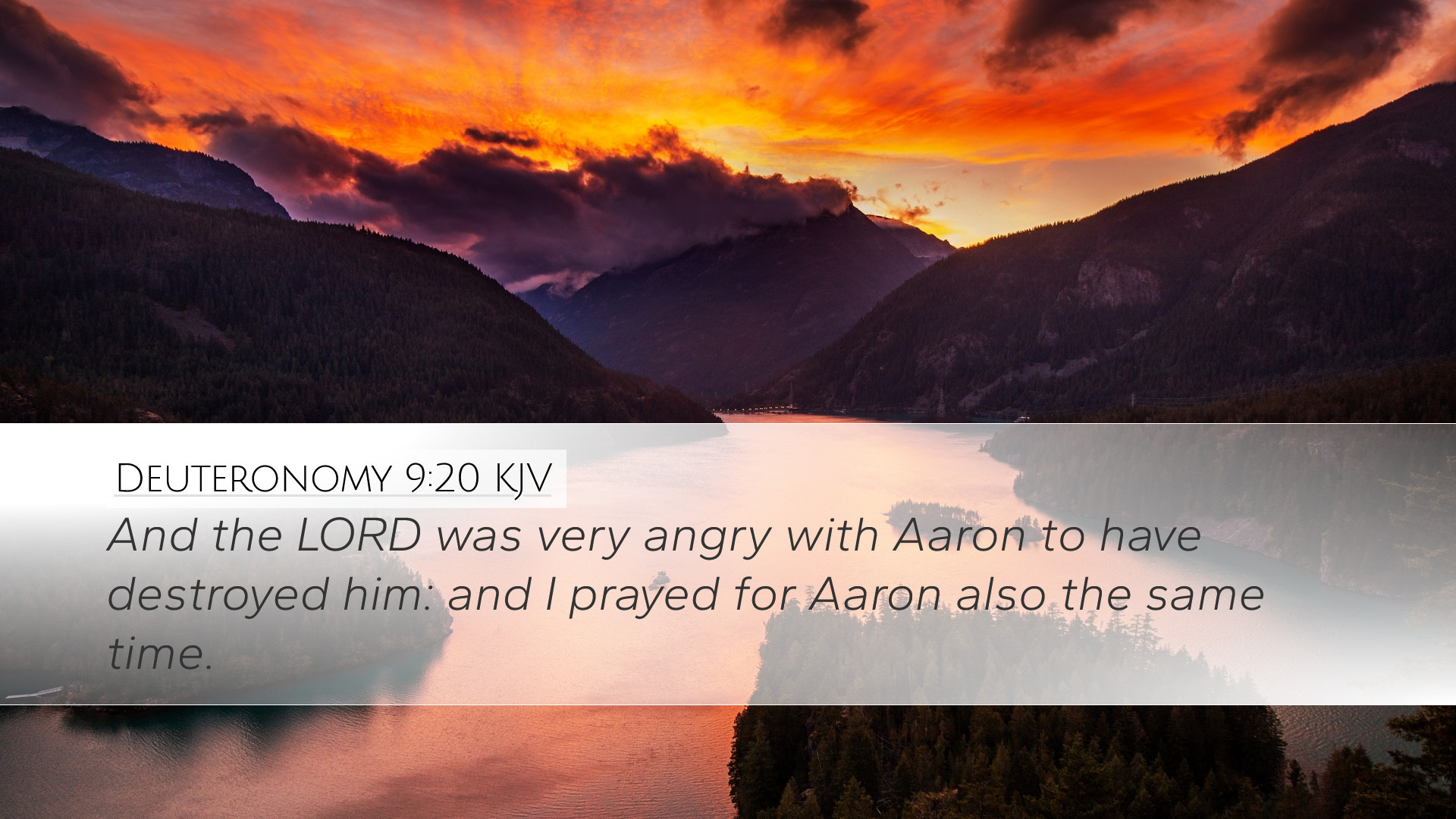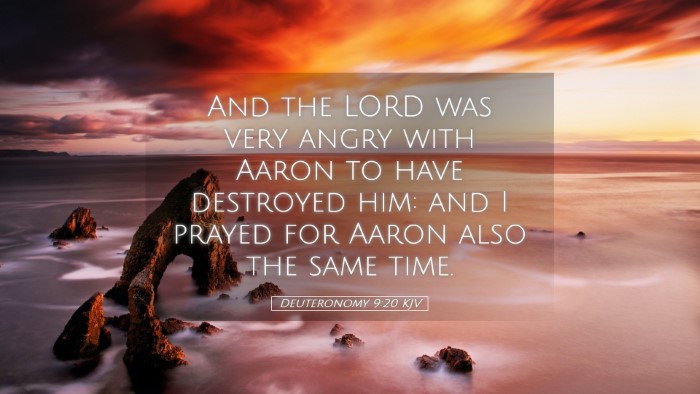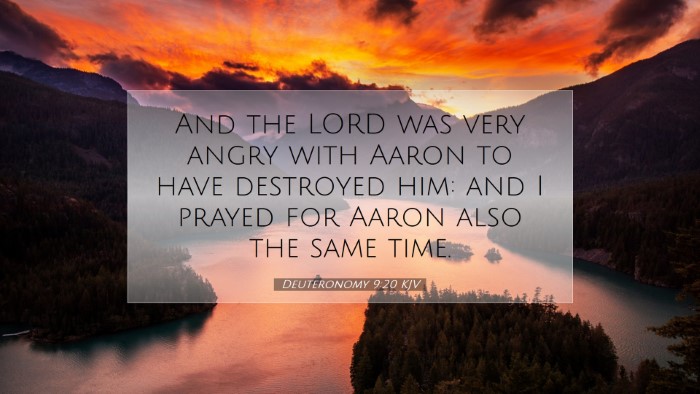Commentary on Deuteronomy 9:20
Deuteronomy 9:20 states, "And the LORD was very angry with Aaron, and would have destroyed him: and I prayed for Aaron also the same time." This passage highlights the severity of God's anger towards sin and the intercessory role of Moses on behalf of Aaron. Below, we explore insights from various public domain commentaries, enriching our understanding of this verse.
Contextual Analysis
This verse is situated in a critical moment in Israel's history as rehearsed by Moses. Following the golden calf incident, where the people of Israel turned to idolatry, Moses recounts the events leading to the divine wrath aimed particularly at Aaron, the high priest. Understanding this context is crucial for a deeper appreciation of Moses' intercession.
Insights from Matthew Henry
Matthew Henry emphasizes several key points regarding this passage:
- The nature of God's anger: Henry notes that God's anger against Aaron was not arbitrary but justified due to the high transgression of leading the people into idolatry.
- Intercession as a response to anger: Henry highlights that in the face of imminent judgment, Moses stands in the gap, illustrating the role of an intercessor. This act signifies the importance of prayer in mitigating judgment and appealing to God’s mercy.
- The significance of Aaron's role: As the high priest, Aaron bore a significant responsibility, and his failure had national implications. Henry reminds readers that the leaders in faith bear greater accountability for their actions.
Insights from Albert Barnes
Albert Barnes offers a more theological reflection on the implications of this passage:
- God’s Just Nature: Barnes points out that God's anger is a response to sin, affirming His righteous character. He stresses that God's willingness to destroy Aaron underscores the seriousness of sin against divine commandments.
- Moses as a Mediator: Barnes brings to light the prefigurative nature of Moses’ intercession, seeing it as a foreshadowing of the ultimate intercessor, Christ. Just as Moses prayed for Aaron, Christ intercedes for humanity.
- The impact of Prayer: The commentary discusses the effectiveness of Moses' prayer, noting that it reflects the power of intercessory prayer in influencing God’s actions. Barnes urges believers to value prayer, particularly for those who are in leadership.
Insights from Adam Clarke
Adam Clarke expands the analysis with historical and critical insights:
- The personal nature of God’s wrath: Clarke observes the individualized nature of God’s anger towards Aaron. He notes the gravity of Aaron's sin, emphasizing that even a spiritual leader like Aaron is not exempt from divine judgment.
- The role of intercession within community: Clarke discusses Moses' concern for Aaron as indicative of a leader's duty to care for their brethren. This aspect highlights communal responsibility in leadership and spiritual oversight.
- Understanding repentance: Clarke comments on the necessity of repentance. Although Moses prayed for Aaron, the need for personal repentance and acknowledgment of sin is pivotal for restoration.
Theological Implications
This passage challenges leaders in the church context today to recognize their responsibilities while also illustrating the critical need for intercessory prayer. As seen in the case of Moses and Aaron, leaders should encourage and practice intercession, understanding its significant role in spiritual communities.
Applications for Pastors and Theologians
In light of Deuteronomy 9:20, pastors and theologians might consider the following applications:
- Call to accountability: Leaders must remains vigilant, understanding the weight of their influence and the potential consequences of leading others astray.
- Encouragement of intercessory prayer: Emphasizing the need for prayer, particularly in leadership, can foster a culture of spirituality and reliance on God within the church.
- Focus on community restoration: Facilitating opportunities for repentance and reconciliation can be mirrored through Moses’ actions, ensuring that the community remains aligned with God’s will.
Conclusion
Deuteronomy 9:20 serves as a profound reminder of the accountability that leaders hold and the mercy that can arise through sincere intercession. Drawing insights from public domain commentaries on this verse not only enriches the understanding of scripture but also imparts timeless lessons relevant to contemporary faith communities.


